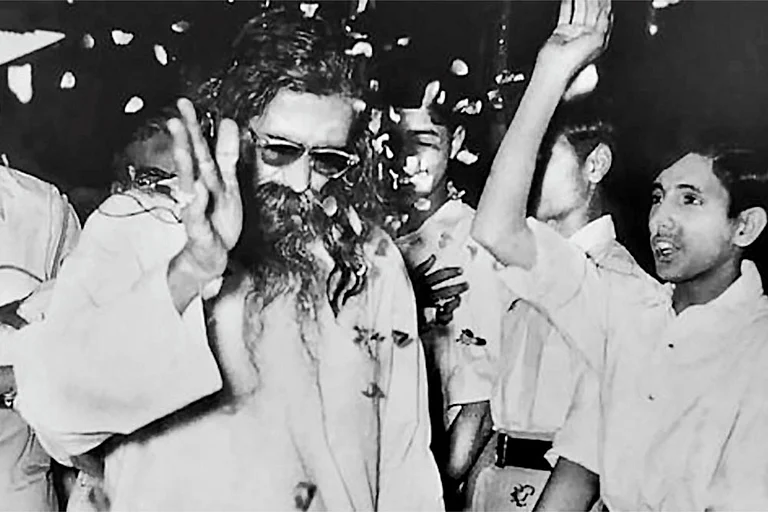 Summary of this article Summary of this article
Once a devoted swayamsevak, Bhanwar Meghwanshi left the RSS after facing caste discrimination, exposing the organisation’s deep-rooted Brahminical hierarchy.
He argues that Hindutva and caste are inseparable, calling the RSS’s attempts at “social harmony” mere tokenism.
He sees hope in young Dalits using literature, social media, and activism to challenge caste oppression
Bhanwar Meghwanshi is a social activist, journalist and writer. He joined the Rashtriya Swayamsevak Sangh (RSS) during his teenage years and rose in the organisation’s ranks. During the Babri Masjid demolition movement, he joined the karsevaks to go to Ayodhya. His arrest became a turning point of his life, prompting him to question the RSS’ casteist realities, and eventually leave the organisation. He founded platforms such as Diamond India, Khabarkosh and Shoonyakaal to amplify marginalised voices. He has also worked with the Mazdoor Kisan Shakti Sangathan and played an important role in implementing laws such as RTI, NREGA and the Food Security Act. His book I Could Not Be Hindu (originally written in Hindi as Main Ek Kar Sevak Tha) has been translated into multiple languages. Meghwanshi spoke to Jagisha Arora about his eventful journey. Excerpts:
Q
In your book I Could Not Be Hindu, you share your journey from being part of the RSS to questioning its casteist foundations. What was the turning point that made you step away from the organisation?
A
In my book, I have explained the caste-based structure that exists within the RSS. While the RSS claims to transcend caste and unite all Hindus, my experience revealed a completely different truth. Dalits, I found, are used merely as foot soldiers and they are pushed to fight for the interests of upper-caste Hindus while their own identity and dignity remain unacknowledged. When Dalit volunteers first join the shakhas, there’s a superficial display of respect but beneath it, the Brahminical hierarchy persists and Dalits are systematically kept away from leadership roles. I personally faced caste discrimination several times, but the turning point came in 1991. In my village, Sidhiyas in Bhilwara district, senior RSS members refused to eat food prepared in my home. They had it packed and carried to another village, only to throw it by the roadside. It happened simply because I was a Dalit.
I immediately lodged complaints at every level, even writing to the then Sarsanghchalak in Nagpur but no one cared to respond. That silence, that refusal to hear my pain, laid bare the hypocrisy of the organisation. That’s when I decided to leave the RSS.
[url=]Related Content[/url]
  Why Tamil Nadu’s Self-Respect Legacy Continues to Checkmate the Rise of Hindutva Politics Why Tamil Nadu’s Self-Respect Legacy Continues to Checkmate the Rise of Hindutva Politics
  Guru Of Exclusion: Golwalkwar's Gospel Of Communal Politics Guru Of Exclusion: Golwalkwar's Gospel Of Communal Politics
  The Deep State | Christophe Jaffrelot Interview The Deep State | Christophe Jaffrelot Interview
  100 Years Of Borrowed Pride Of RSS 100 Years Of Borrowed Pride Of RSS
[url=]Related Content[/url]
  Why Tamil Nadu’s Self-Respect Legacy Continues to Checkmate the Rise of Hindutva Politics Why Tamil Nadu’s Self-Respect Legacy Continues to Checkmate the Rise of Hindutva Politics
  Guru Of Exclusion: Golwalkwar's Gospel Of Communal Politics Guru Of Exclusion: Golwalkwar's Gospel Of Communal Politics
  The Deep State | Christophe Jaffrelot Interview The Deep State | Christophe Jaffrelot Interview
  100 Years Of Borrowed Pride Of RSS 100 Years Of Borrowed Pride Of RSS |